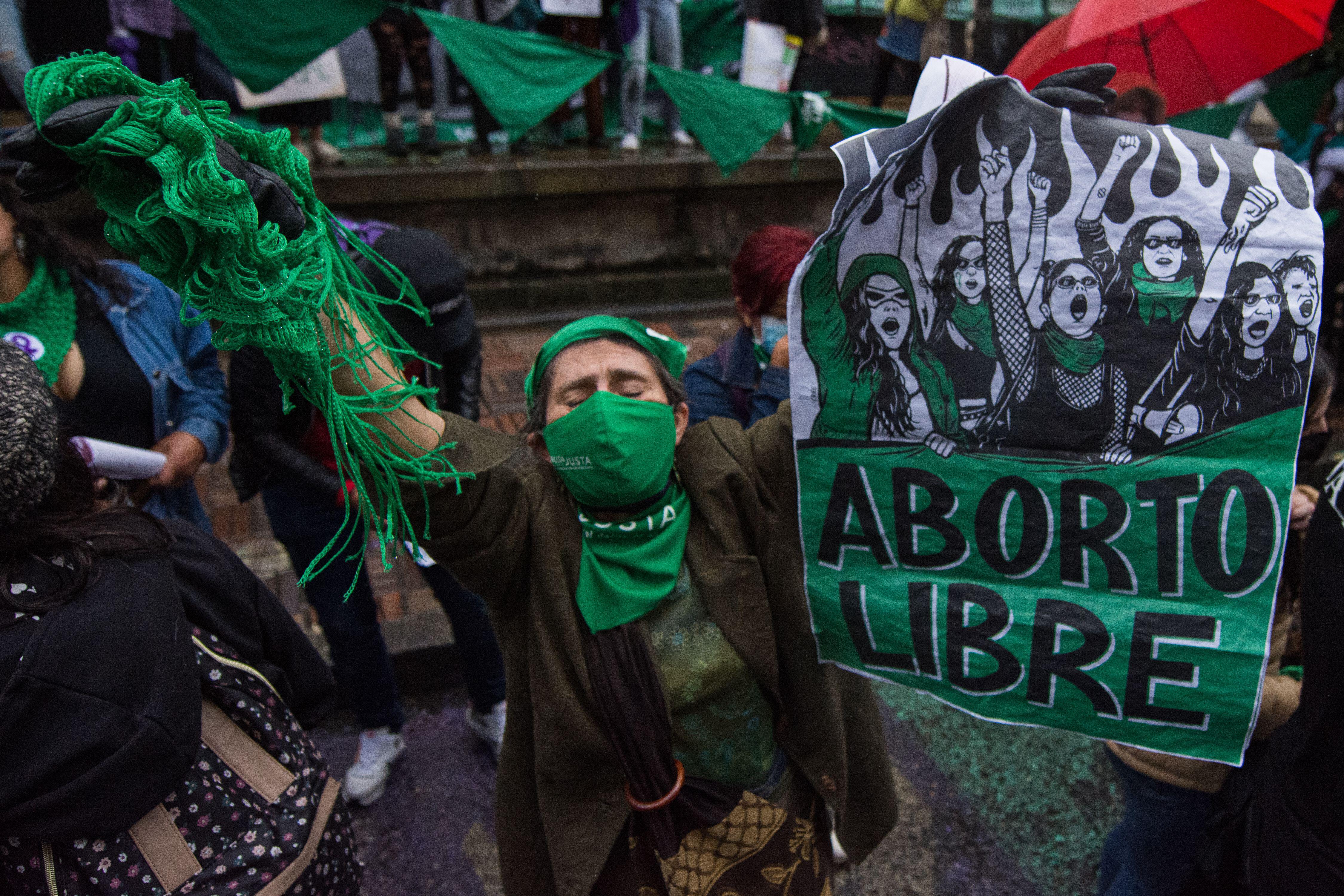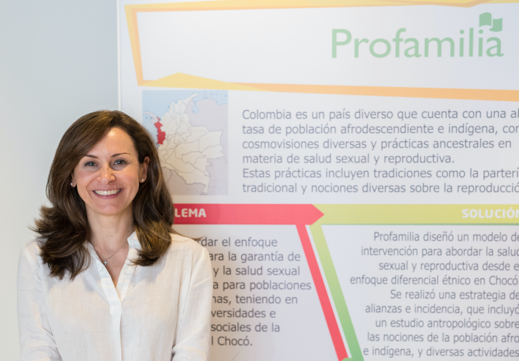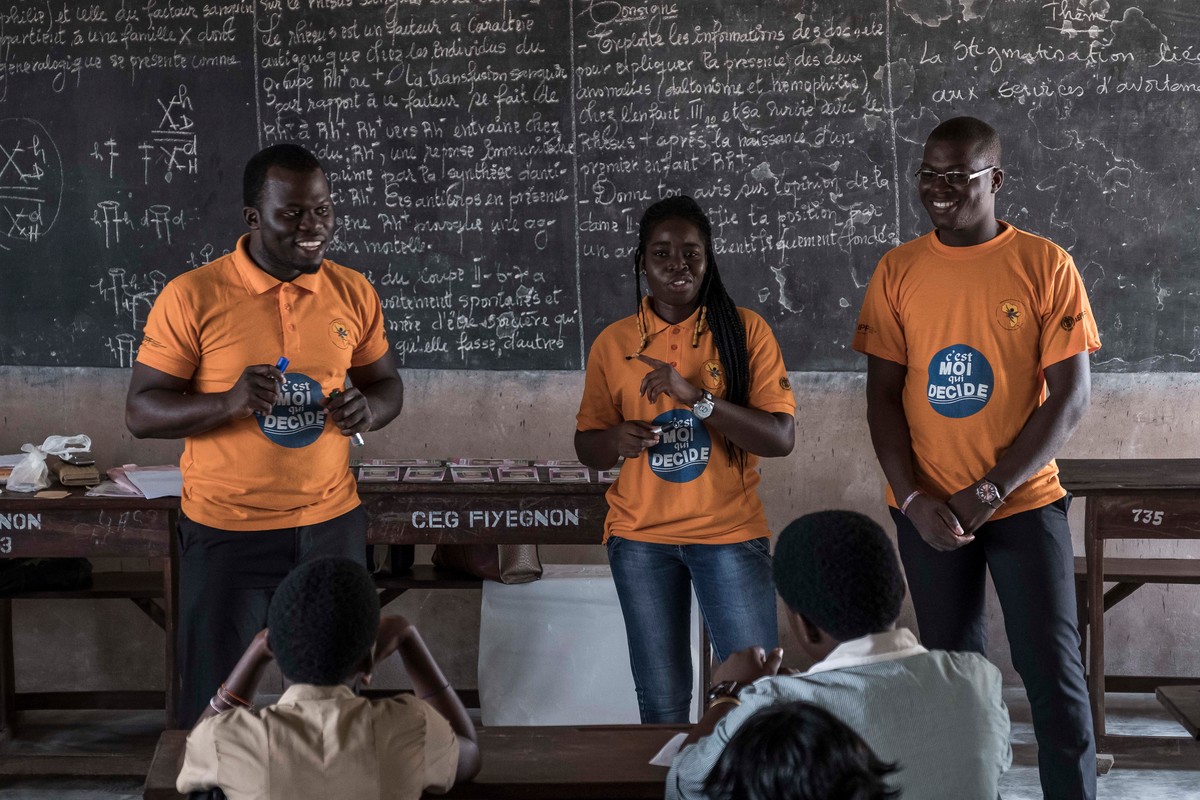IPPF interviewed Profamilia Colombia's Executive Director, Marta Royo, to discuss what it means to be a member of a global Federation like IPPF, and what her hopes are for the Americas region. This interview is available in English and Spanish.
How long has Profamilia been a member of IPPF?
Profamilia joined IPPF in 1968 as an associate, and in 1971 we became a full member.
Why did Profamilia join IPPF?
Profamilia understood from very early on that in order for sexual and reproductive health provision, and further down the line, to ensure the sexual and reproductive rights of every person were advanced and recognized, it was essential to unite the voices and actions of all the organizations and leaders all over the world that supported the cause. For Profamilia, IPPF means learning spaces, an exchange with experts on the most relevant themes of healthcare, medicine and education, as well as active participation in critical areas of advocacy.
Could you explain to us how Profamilia values being part of a worldwide federation working for sexual and reproductive rights?
For Profamilia, the value that the Federation adds is enormous. It gives us the possibility to exchange experiences and knowledge with other associations around the world, enriching our work, and allowing it to advance more quickly and with greater strength. In addition, it offers the opportunity to present projects through donors who support our issues. This has allowed us to have access to important resources with which the organization has been able to work with the most vulnerable populations in our country – from advocacy to healthcare service delivery, research, addressing issues as varied as abortion care, contraception and comprehensive sex education. Without this support, thousands of people in Colombia would not have access to any of these services. Additionally, the grant that we receive annually has made it possible throughout the years to invest in Profamilia’s capacity, strengthening our processes, improving the quality of our services and responsiveness to the population.
Could you tell us how Profamilia participated in the General Assembly in India last November and in IPPF’s reform process?
Profamilia actively participated in IPPF’s entire reform process. Before the Assembly we completed all the surveys, sharing relevant observations. Once in Delhi, our delegates and Executive Management attended all the meetings where the themes were discussed, splitting up to ensure that we could attend and contribute to both the discussion on governance issues and those on the resource allocation model. On the voting day we talked with other associations, negotiating some of the most important points. When voting on the reforms, all the Profamilia team did so earnestly, with enthusiasm and trust in the new future of IPPF.
What is your vision of IPPF’s expansion in the Americas region and how do you feel being a central part of this process?
The support of IPPF is essential in the region. After all, it has had an important presence for many years. Although Latin America gives the impression that it has many things in common, there are also profound differences between its countries, and having a Federation which convenes us and unifies us around the sexual and reproductive health movement is essential in reducing the inequalities of the region. These inequalities affect in particular young girls, teenagers and women; it is critical to join forces with organizations that allow us, in a whole and organized manner, to reduce the factors which generate these gaps.
Being a central part of this process is a real challenge! In considering the factors essential for success, one of the most important components is strengthening existing alliances and looking for new organizations who want to combine forces and ideas. Building a network which respects differences in opinion and vision, but that feels united in the purpose of fighting for and defending human, sexual and reproductive rights. It will be one which welcomes flexibility, open minds, calmness in taking decisions, diversity and in all the wide meaning of the word.
Could you tell us the best part of being part of IPPF’s worldwide movement in sexual and reproductive health?
Being part of IPPF is feeling accompanied, always, in this challenge which is the defence of sexual health and reproductive health. It is knowing that when it comes to rights, its absence affects little girls in Colombia, Namibia, Ireland, Cambodia or Samoa in the same way. And that on the contrary, when they are guaranteed, the same girls become empowered young people, women who can make decisions about their bodies, their sexuality, their lives!
Interview in Spanish
Hace cuanto tiempo que su Asociación es miembro de IPPF?
Profamilia entró a ser parte de IPPF en 1968 como asociado y en 1971 se convirtió en miembro pleno.
Por qué su asociación se unió a IPPF?
Profamilia entendió desde muy temprano que para que la salud sexual y reproductiva, y más adelante los derechos sexuales y reproductivos de todas las personas avanzaran y fueran reconocidos era indispensable unirse a las voces y acciones de todas las organizaciones y líderes alrededor del mundo que apoyaban la causa. IPPF significa para Profamilia espacios de aprendizaje, intercambio con expertos en los temas más relevantes de la medicina y la educación, además de una activa participación en espacios críticos de incidencia.
Nos podría explicar cómo valora su organización el ser parte de una Federación mundial trabajando por los derechos sexuales y reproductivos?
Para Profamilia el valor que agrega la Federación es enorme. Nos da la posibilidad de intercambiar experiencias y conocimiento con otras asociaciones en el mundo, enriqueciendo nuestro trabajo, y permitiendo avanzar más rápido y con mayor fuerza. Así mismo, brinda la oportunidad de presentar proyectos a través de los donantes que apoyan nuestros temas. Eso ha permitido tener acceso a importantes recursos con los cuales la organización ha podido trabajar con la población más vulnerable de nuestro país, desde incidencia, prestación de servicios de salud, investigaciones, atendiendo problemáticas tan variadas como aborto, anticoncepción, educación integral en sexualidad. Sin este apoyo, miles de personas en Colombia no tendrían acceso a ninguno de estos servicios. Adicionalmente, la subvención que recibimos anualmente ha posibilitado a lo largo de los años invertir en la capacidad instalada de Profamilia, fortaleciendo nuestros procesos, mejorando la calidad y capacidad de respuesta a la población.
Nos podría contar cómo su asociación participó en la Asamblea General en la India el pasado Noviembre y en el proceso de reforma de IPPF?
Profamilia participó activamente en todo el proceso de reforma de IPPF. Desde antes de la Asamblea General, diligenciamos todas las encuestas enviadas, compartiendo observaciones relevantes para las mismas. Una vez en Delhi, los delegados de la organización y la Dirección Ejecutiva asistimos a todas las reuniones donde se discutieron los temas, dividiéndonos para garantizar que podríamos asistir y aportar tanto a las discusiones sobre los temas de gobernanza como a las del modelo de asignación de recursos. El día de la votación conversamos con otras asociaciones, negociando algunos de los puntos más críticos. En el momento de votar las reformas todo el equipo de Profamilia lo hicimos a conciencia, con entusiasmo y confianza en el nuevo futuro de IPPF.
Cuál es su visión sobre la expansión de IPPF en la región de las Americas y cómo se siente al ser parte central de este proceso?
Es fundamental contar con el apoyo de IPPF en la región. Después de todo, ha tenido una presencia importante durante muchos años a través de lo que era su oficina regional. Aunque Latinoamérica da la sensación de compartir muchas cosas en común, también existen profundas diferencias entre sus países y tener una Federación que nos convoque y unifique alrededor del movimiento de derechos sexuales y derechos reproductivos es esencial para lograr reducir las inequidades de la región. Estas inequidades afectan particularmente a las niñas, adolescentes y mujeres; es crítico sumar esfuerzos y organizaciones que nos permitan, de manera conjunta y coordinada, reducir los factores que generan estas brechas.
Ser parte central de este proceso es todo un desafío! Considero que entre los factores de éxito, uno de los componentes más importante es fortalecer las alianzas existentes y buscar nuevas organizaciones que quieran aunar esfuerzos e ideas. Construir una red que respete la diferencia de opiones y visiones, pero que se sienta unida en el propósito de lucha y defensa de los derechos humanos y sexuales y reproductivos. Bienvenida la flexibilidad, las mentes abiertas, la serenidad en la toma de decisiones, la diversidad, en todo el amplio significado de la palabra!
Nos podria decir qué es lo mejor de ser parte del movimiento mundial de IPPF en salud sexual y reproductiva?
Ser parte de IPPF es sentirse acompañada, siempre, en este desafío que es la defensa de los derechos sexuales y derechos reproductivos. Es saber que cuando se trata de derechos, su ausencia afecta de la misma manera a las niñas de Colombia, Namibia, Irlanda, Camboya o Samoa. Y que al contrario, cuando se garantizan, las mismas niñas se convierten en adolescentes empoderadas, mujeres que pueden decidir sobre sus cuerpos, su sexualidad, sus vidas!

















